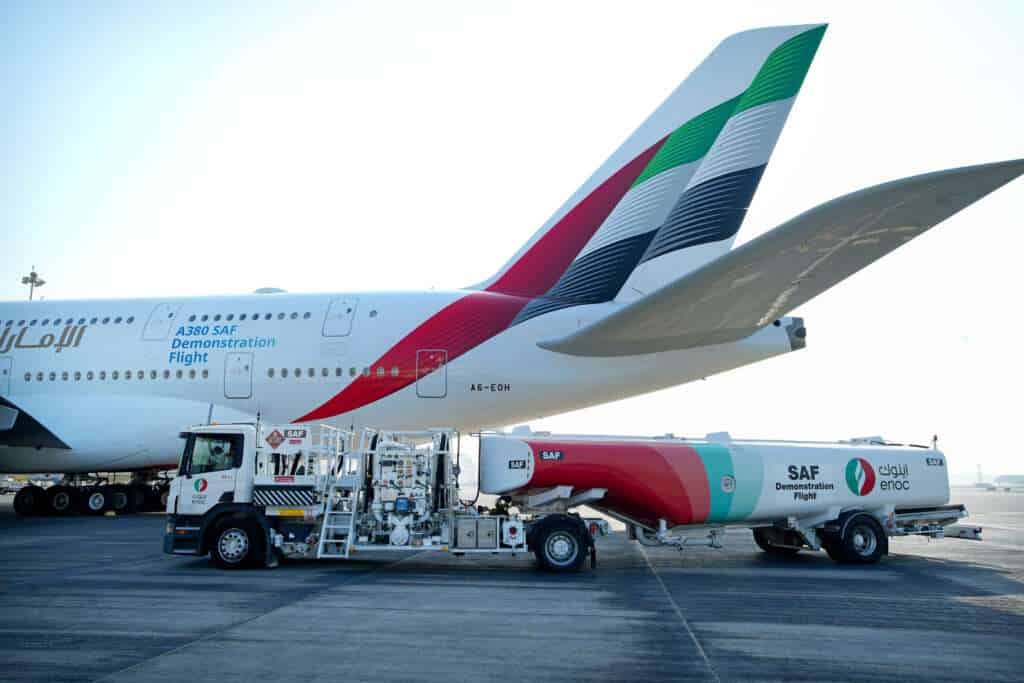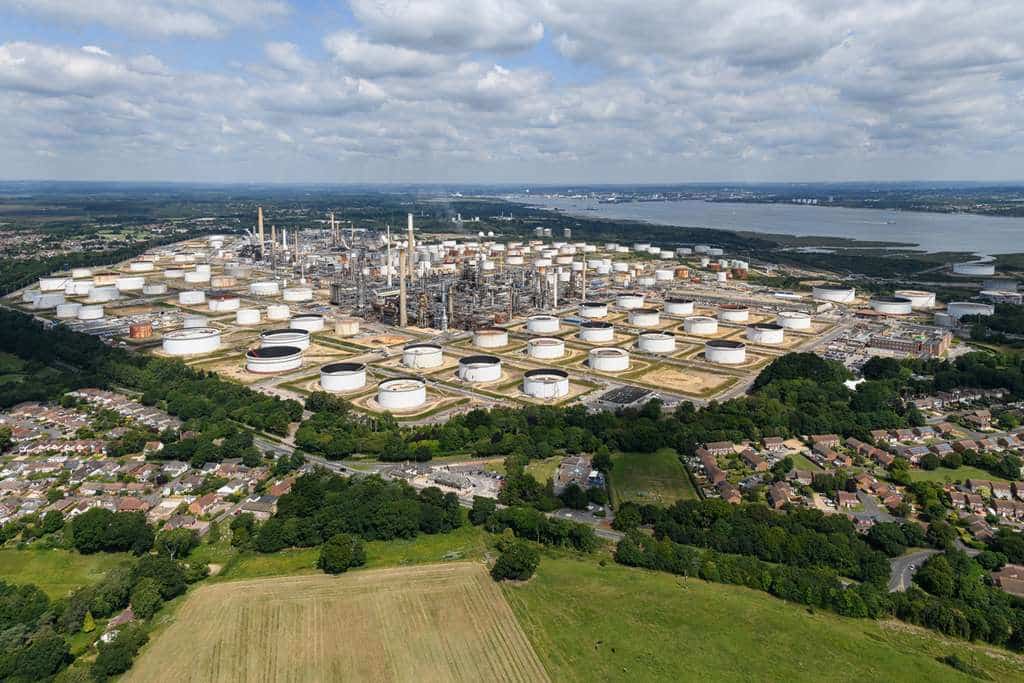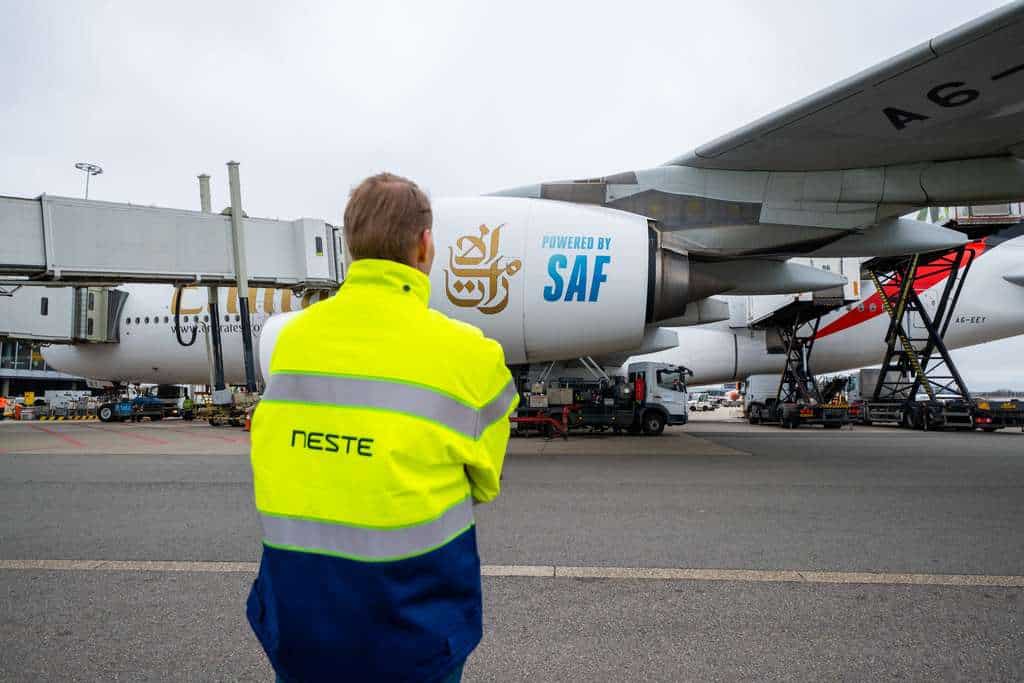Emirates has begun utilizing its major sustainable aviation fuel (SAF) agreement with Neste at Amsterdam Schiphol Airport this month.
This collaboration signifies a significant step towards reducing the airline’s environmental impact.
Over the course of 2024, more than 2 million gallons of blended SAF will be delivered into Schiphol’s fueling system.
Emirates will then track both the delivery process and the resulting environmental benefits using established industry accounting methods.

Negotiations with Neste
This partnership with Neste, announced in late 2023, represents one of Emirates’ largest SAF acquisitions to date.
Upon full delivery, the blended SAF will incorporate over 700,000 gallons of neat SAF, a fuel with a significantly reduced carbon footprint.
Negotiations are also underway with Neste to introduce SAF into Singapore Changi Airport’s fueling systems in the coming months.
“Working with dedicated partners like Neste is a practical step we’re taking to lessen our emissions,” said Adel Al Redha, Deputy President and Chief Operations Officer at Emirates.
“This collaboration serves as a crucial milestone on our path towards becoming a more sustainable airline. Strong partnerships, particularly at key air hubs like Amsterdam, pave the way for increased accessibility and availability of SAF across our network.”

Alexander Kueper, Neste’s Vice President of Renewable Aviation, expressed his pride in supporting Emirates’ sustainability efforts. “Neste MY Sustainable Aviation Fuel delivers a readily available solution for lowering greenhouse gas emissions in air travel,” he said.
“We’re thrilled that Emirates has begun utilizing this fuel at Amsterdam Airport Schiphol. This collaboration exemplifies how partnerships can accelerate SAF adoption, and we eagerly anticipate the next steps in our cooperation.”
The agreement’s SAF is fully compatible with existing jet engines and airport fueling infrastructure. In its neat form, it boasts a lifecycle carbon emission reduction of up to 80% compared to conventional jet fuel.
From First SAF Flight in 2017
Emirates’ commitment to sustainability continues beyond this recent agreement. Their inaugural SAF-blended flight departed from Chicago in 2017, and they currently offer SAF-powered flights from Paris, Lyon, and Oslo.
Additionally, in October 2023, they collaborated with partners to integrate SAF into Dubai Airport’s fueling systems, supplying fuel for flights including one to Sydney.
Further demonstrating their dedication, Emirates became the first international carrier to join the UK’s Solent Cluster earlier this year.

This initiative focuses on low-carbon investments and has the potential to establish a sustainable aviation fuel plant capable of producing 200,000 tonnes annually by 2032.
Emirates actively participates in numerous industry and UAE government working groups, fostering continuous dialogue with stakeholders to bolster SAF production and accessibility.
The airline, along with the UAE GCAA, has played a key role in developing the UAE’s power-to-liquid (PtL) fuels roadmap.
They have also contributed to the UAE’s National Sustainable Aviation Fuel Roadmap, which aims to establish the UAE as a regional hub for alternative aviation fuels, targeting production of 700 million liters of SAF by 2030.
As a founding member of the UAE research consortium Air-CRAFT, Emirates collaborates with various entities across aviation, government, and academia to develop, produce, and scale sustainable aviation fuel technologies for the industry.









